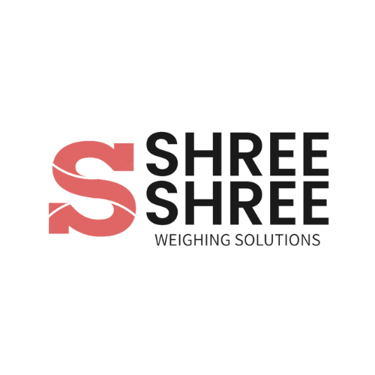Weighing Scales for the Pharmaceutical Industry: Ensuring Precision, Compliance, and Quality Control
In the pharmaceutical industry, accuracy is critical, not just for producing high-quality medicines but for ensuring the safety and efficacy of products. Whether it's weighing active pharmaceutical ingredients (APIs), excipients, or final dosage forms, weighing scales are an indispensable tool for ensuring precision and compliance. This blog explores how weighing scales play a crucial role in the pharmaceutical industry, from production to quality control and regulatory compliance.
5/27/20255 min read


Introduction
1. Precise Weighing for Active Pharmaceutical Ingredients (APIs)
The foundation of any pharmaceutical product lies in the active pharmaceutical ingredient (API). These ingredients must be weighed accurately to ensure correct dosage and therapeutic effectiveness. Even minor deviations in weight can lead to variations in the potency of the medication, which may have serious health consequences.
Analytical balances and precision balances are used in laboratories to measure small quantities of APIs with utmost precision.
Top-loading balances are ideal for weighing larger amounts of raw materials, ensuring consistent production of high-quality products.
With accurate weighing systems, pharmaceutical manufacturers can ensure the correct formulation of active ingredients, providing consistent therapeutic effects in every batch.
2. Meeting Regulatory Compliance and Standards
The pharmaceutical industry is highly regulated, with stringent guidelines and standards set by authorities like the FDA, EMA, and WHO. Ensuring that all pharmaceutical products meet these regulations is paramount, and weighing scales play an essential role in achieving this compliance.
Certified weighing equipment ensures that all measurements comply with regulatory standards, helping pharmaceutical manufacturers avoid fines and product recalls.
Calibration and validation of weighing instruments are crucial for ensuring that the scales remain within the required tolerances.
By using certified and calibrated weighing equipment, pharmaceutical companies can meet the Good Manufacturing Practices (GMP) and other regulatory requirements, ensuring that products are both safe and effective.
3. Weighing for Quality Control and Product Consistency
In the pharmaceutical industry, consistency and quality are critical. The smallest deviation in ingredient quantities can compromise the safety and efficacy of a drug. Weighing scales are used extensively during the quality control process to ensure that each product meets the required specifications.
Balance scales are used to check the weight of active ingredients and excipients in the formulation process, ensuring that the right amount of each ingredient is used.
Checkweighers are employed to verify the weight of finished products, ensuring that tablets, capsules, or syrups meet the correct weight and dosage requirements.
By ensuring that each product meets the exact specifications, weighing equipment helps maintain consistent product quality, minimize defects, and reduce the risk of recalls.
4. Supporting Pharmaceutical Manufacturing Efficiency
In pharmaceutical manufacturing, speed, precision, and efficiency are key to ensuring that products are produced in a timely manner without compromising quality. Weighing scales help optimize the production process, minimize errors, and enhance efficiency.
Automated weighing systems can integrate with production lines to weigh ingredients automatically, reducing manual errors and improving speed.
Real-time weighing data helps manufacturers monitor production processes, adjust quantities, and maintain product quality without disrupting the workflow.
By using automated weighing solutions, pharmaceutical manufacturers can streamline production, reduce human errors, and improve overall operational efficiency.
5. Weighing for Batch Control in Pharmaceutical Production
In batch manufacturing, it is crucial to weigh ingredients in precise amounts to ensure that every batch of medication is uniform and meets the required standards. Inconsistent weighing can lead to batch variation, which can affect product potency and safety.
Batch weighing scales ensure that the right quantities of each ingredient are added during production, preventing batch-to-batch variation.
Mixing scales are used to weigh the combined ingredients in the correct proportions before moving to the next stage in the production process.
With accurate batch weighing, pharmaceutical manufacturers can ensure that every batch meets the exact requirements, ensuring consistency and product quality across production runs.
6. Preventing Overweight or Underweight Packaging
Accurate packaging is essential in the pharmaceutical industry. Overweight or underweight packaging can result in regulatory violations, increased costs, and dissatisfaction from consumers. Weighing scales ensure that each pharmaceutical product is packaged accurately, meeting both consumer expectations and regulatory standards.
Checkweighers are used to weigh pharmaceutical packages during production, ensuring that each package contains the correct amount of product.
Dynamic weighing systems can weigh products in motion, verifying the accuracy of weight on fast-paced packaging lines.
By using automated checkweighing systems, pharmaceutical companies can reduce packaging errors, ensure compliance, and minimize the risk of recalls.
7. Ensuring the Accuracy of Solid Dosage Forms (Tablets, Capsules)
Accurate weighing is especially important in the production of solid dosage forms like tablets and capsules. Each tablet or capsule must contain the precise amount of active ingredient to ensure its therapeutic effect. Weighing scales play a vital role in this process by ensuring that both the ingredients and the final products meet stringent weight standards.
Tablet press scales are used to ensure that the tablets being produced contain the exact amount of active ingredient.
Capsule filling machines use precision scales to measure the amount of active ingredient and excipients used in each capsule.
By ensuring accurate tablet and capsule production, pharmaceutical manufacturers can maintain quality, minimize wastage, and ensure patient safety.
8. Weighing for Pharmaceutical Packaging and Labeling
Packaging and labeling are essential parts of pharmaceutical manufacturing, not only for providing product information but also for ensuring that the correct dosage is administered. Weighing scales help ensure that the packaged product meets the regulatory requirements regarding weight and dosage.
Automated checkweighing systems ensure that the weight of the packaged product is accurate before it is labeled and sealed.
Weight-controlled labeling systems verify that labels match the weight of the product inside, preventing over- or under-labeling.
With accurate packaging weighing systems, pharmaceutical companies can ensure compliance with labeling regulations and avoid costly packaging mistakes.
9. Weighing for Pharmaceutical Raw Material Management
Efficient raw material management is essential for pharmaceutical manufacturers to ensure that they have enough ingredients available without overstocking, which can lead to wastage. Weighing scales help manufacturers track the quantity of raw materials used in production.
Inventory weighing systems allow companies to monitor the amount of raw material left in stock, helping to prevent shortages or excess inventory.
Real-time data allows manufacturers to optimize purchasing and reduce storage costs.
By using weighing solutions for inventory management, pharmaceutical manufacturers can ensure supply chain efficiency and minimize costs.
10. Supporting Sustainability and Waste Reduction in Pharmaceutical Manufacturing
The pharmaceutical industry, like other sectors, is increasingly focused on sustainability and waste reduction. Weighing scales help minimize material wastage during the manufacturing process, reducing environmental impact and optimizing resource usage.
Weighing systems track material usage during production, helping manufacturers identify areas where they can reduce waste.
Data logging features in modern weighing systems help companies monitor environmental metrics such as waste levels, energy usage, and material efficiency.
By integrating sustainable weighing practices, pharmaceutical manufacturers can reduce their environmental footprint, optimize production costs, and contribute to a more eco-friendly industry.
Conclusion
In the pharmaceutical industry, weighing scales are essential for ensuring accuracy, compliance, and product quality at every stage of the manufacturing process. From weighing active ingredients to packaging finished products, weighing systems are indispensable tools that ensure precision, efficiency, and consistency. By investing in certified, accurate weighing solutions, pharmaceutical companies can maintain the highest standards of product safety and regulatory compliance while optimizing their operations.
At Shree Shree Weighing Solutions, we provide reliable, certified weighing solutions that meet the specific needs of the pharmaceutical industry. Whether you need precision balances, checkweighers, or automated weighing systems, we have the right equipment to support your production goals and help you maintain the highest standards of quality.
Need Reliable Weighing Solutions for the Pharmaceutical Industry?
📞 Contact us today to explore our customized weighing solutions for the pharmaceutical sector.
📍 Visit our Ahmedabad showroom, or schedule a demo at your facility across Gujarat.
